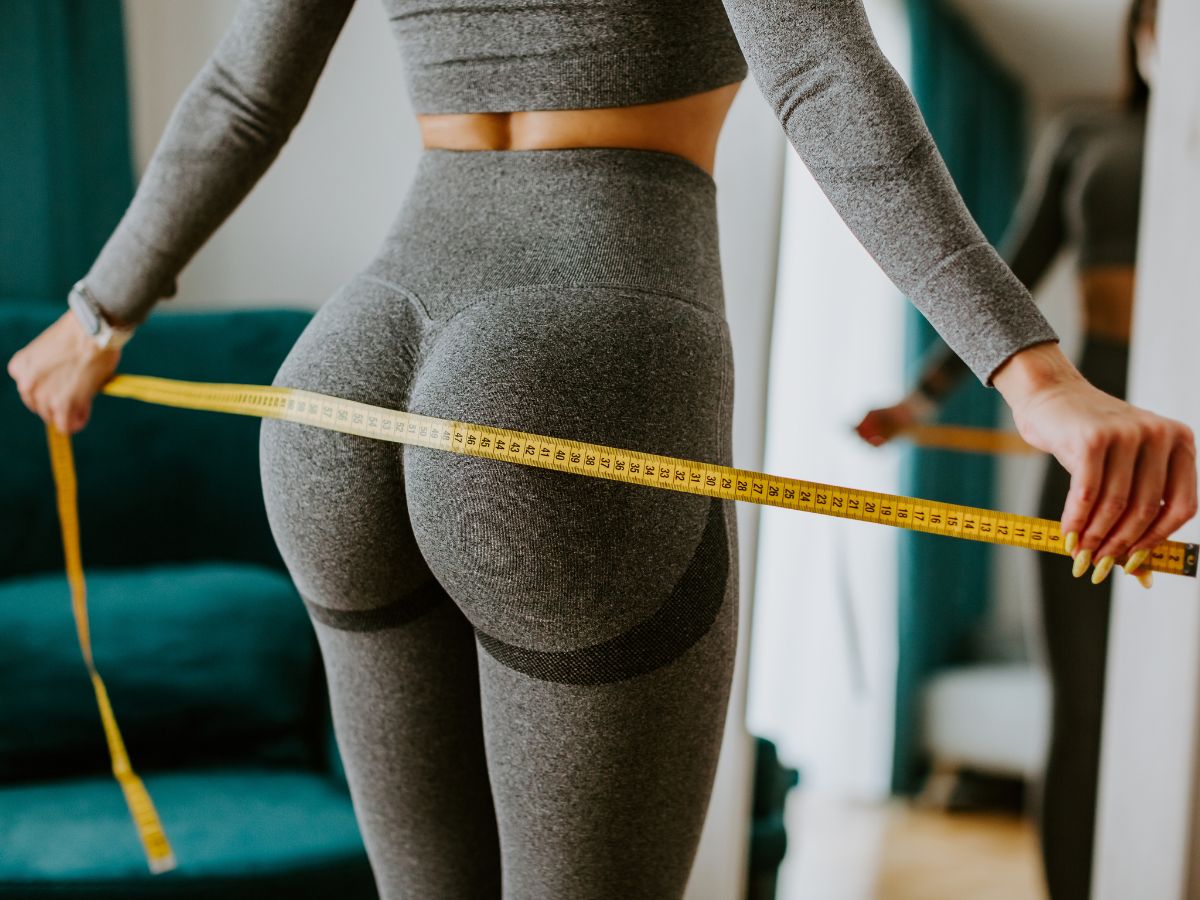Do you wish your stomach was tighter and smoother? Do you have excess abdominal skin you wish you could eliminate? If so, our aesthetic experts at Georgia Plastic and Reconstructive Surgery in Marietta, GA may have the perfect solution for you. Today, our experts are talking about abdominoplasty, also known as a tummy tuck. Here’s what you need to know about this reliable, effective body contouring procedure.
Is a Tummy Tuck Permanent?
Some people find the results of a tummy tuck are permanent. If you can keep your weight fairly stable, you can feel confident your contours will remain smooth for the rest of your life. Your body fat distribution affects how much weight gain must occur before you start to notice changes in your improved contours. If you tend to store abdominal weight, you may notice a change in your improved contours after only gaining five pounds of fat.
That said, you may be able to gain 10 or 15 pounds before you start to notice a change in your abdominal contours if you distribute fat pretty evenly throughout your body. Furthermore, there are situations under which you may need a follow-up procedure. For example, abdominal distension may occur if you become pregnant after your tummy tuck. Additionally, a follow-up procedure may be necessary if you get a ventral hernia.
What Is the Best Way To Maintain Weight?
Most people gain and subsequently lose excess weight repeatedly over the course of a lifetime. However, you should keep in mind maintaining your weight is the only way to keep your desired contours. There are many ways you can maintain your weight for the rest of your life. However, at the end of the day, weight maintenance comes down to only consuming the fuel your body needs to maintain its weight based on your activity level.
Some people find it easy to maintain their weight by engaging in moderate cardio and ending their night with a small bowl of ice cream or glass of wine. Other people find it easy to maintain their weight by eating high volumes of low-calorie, nutritious foods to keep them full. Here’s a closer look at some of the ways that you can maintain your weight.
Strength Training
Strength training is a great way to maintain your weight. Muscle mass is much more metabolically active than adipose tissue. Therefore, if you put on muscle, you will need more calories to maintain your weight. Whether you are worried about maintaining your weight post-op or not, we strongly recommend resistance training at least twice weekly.
Cardiovascular Workouts
There are numerous health benefits associated with anaerobic exercise. The stronger your muscles are, the easier it will be for you to keep up with your kids and excel at your favorite active hobbies. Nevertheless, cardiovascular exercise is also essential for your health and quality of life. Additionally, it is a great way to burn lots of calories quickly so you can enjoy a guilt-free afternoon of less-than-healthy foods.
According to the AHA and CDC, healthy-weight people should get 15 minutes of vigorous exercise daily, five days per week for pulmonary and cardiovascular health. Individuals trying to lose weight should double this amount of exercise. For reference, a 135-pound woman can burn 175 calories during a 15-minute vigorous cardio session. A healthy-weight man can burn much more than that in the same amount of time.
What if I Can’t Perform Vigorous Cardio?
You can maintain your health, fitness, and weight without exercising at a vigorous activity. To maintain your heart and lung health without vigorous cardiovascular exercise, you should exercise at a moderate intensity for 30 minutes daily, five days per week.
Note, this is recommended by both the AHA and CDC for healthy-weight individuals. If you are trying to lose weight while maintaining your heart and lung health, you should double the aforementioned guidelines.
Diet
Strength training and cardiovascular workouts are important for your appearance and health. That said, keeping a close eye on your diet is the simplest way to maintain your weight after your tummy tuck. The adage, “you can’t outrun your fork” exists for a reason. It’s true.
A Note on Losing Weight Post-Operatively
If you decide you want to lose weight after your tummy tuck, it is very important to do so slowly. When you lose weight through diet and exercise, it takes a while for your skin to tighten in response to the weight loss. It is highly advisable to lose no more than a pound or two of fat per week. In other words, you should calculate your TDEE (total daily energy expenditure) based on your height, weight, and activity level.
Then, you should operate at a daily caloric deficit of no greater than 500 to 1,000. Furthermore, to give your skin the best possible chance of staying tight throughout your weight loss journey, you should do everything you can to keep your collagen healthy. We recommend wearing sunscreen diligently, staying hydrated, eating Vitamin C- and collagen-rich foods, and not smoking.
Do I Qualify for This Procedure?
You may qualify for a tummy tuck if you are no more than 20 pounds from your goal weight and you have tried unsuccessfully to sculpt your dream stomach contours through regular exercise and a healthy diet. Often, people seek this procedure because their abdominal muscles are weak. Weak abdominal muscles are often accompanied by such side effects as chronic lower back pain, ventral hernias, and stress urinary incontinence.
Note, to qualify for this procedure, it is essential that you can follow all pre-op guidelines. For example, you will not qualify for abdominoplasty if you can’t refrain from nicotine or alcohol consumption for several weeks. You must refrain from consuming such chemical compounds in the weeks leading up to your procedure for many reasons, including how they affect your blood pressure and ability to recover quickly post-op.
Factors That May Preclude You From Candidacy
As noted above, you will not be considered a good candidate for this procedure if you cannot adhere to all pre-op guidelines. Additionally, you will not be considered a good candidate for this procedure if you are pregnant or breastfeeding.
If you are pregnant, nursing, or trying to become pregnant, you will need to hold off on abdominoplasty. Furthermore, it is advisable to be done having children due to the possibility of affecting the results.
What if I Like My Upper Abs?
If you are satisfied with the appearance of your upper abs, you may be the ideal candidate for a partial abdominoplasty, also known as a mini-tuck. Unlike full or traditional abdominoplasty, partial abdominoplasty does not involve the tightening of your abdominal muscles. Instead, the scope of the procedure is the removal of excess skin and fat beneath the navel and the tightening of loose skin. Additionally, the navel is very rarely repositioned during this quick, effective procedure.
We will evaluate your abdominal region and discuss your goals during your initial consultation to determine which tummy tuck variation is appropriate for you. If you are seeking an abdominal tuck to treat a medical condition, full abdominoplasty will be required.
What Medical Conditions Can a Full Abdominal Tuck Correct?
Many medical conditions can be corrected with a full abdominal tuck. To reiterate, clients often seek this procedure to treat stress urinary incontinence, a condition that often occurs after vaginal childbirth. That said, it can affect anyone. People who suffer from this condition experience leaks when stress occurs, such as coughing, jumping, running, and sneezing. Full abdominoplasty treats this condition by strengthening the pelvic floor muscles.
Ventral hernias are another condition often treated by full abdominoplasty. Like stress urinary incontinence, this condition is common in mothers but can affect anyone. Ventral hernias occur when a portion of the intestine bulges through a hole in the abdominal wall. Abdominoplasty is a great way to reverse this condition because it strengthens the abdominal walls, mitigating the risk of developing future ventral hernias. Chronic lower back pain can also be reversed by this highly effective procedure.
Can Other Procedures Complement Abdominoplasty?
Yes, abdominoplasty is commonly used in conjunction with other procedures. During your initial evaluation, we will discuss all of your aesthetic goals to determine whether abdominoplasty alone will be enough for you to achieve the look you want. If you have quite a bit of excess fat in your abdominal region, you may need to combine your abdominal tuck with liposuction to achieve the contours you’ve dreamed of for years.
Liposuction
Liposuction is the gold standard in fat removal. It has been used for over four decades to remove unwanted fat safely and effectively and is FDA-approved. While abdominoplasty only involves the excision of a bit of excess fat, liposuction can remove approximately 26% of the fat cells in your abdominal region.
Do I Qualify for This Procedure?
If you qualify for abdominoplasty, you probably qualify for liposuction. Remember, to be considered a good candidate for an abdominal tuck, you should be within 20 pounds of your ideal weight, fairly healthy, and committed to following all pre-op guidelines. To be considered a good candidate for liposuction, you should be within 30 pounds of your ideal weight, fairly healthy, and committed to adhering to all pre-op guidelines.
That said, it is very important to come in for an initial evaluation to determine whether liposuction will help you achieve your aesthetic goals. Your body fat distribution significantly affects the results you can get from this fat removal procedure. Additionally, you should note that you can receive liposuction virtually anywhere. For example, you may want to remove excess fat from your abdominal region and:
- Upper arms
- Underarms
- Thighs
- Buttocks
- Flanks
- Hips
- Back
- Chest
- Neck and chin
How Much Weight Can I Lose With Liposuction?
You should understand liposuction is not a weight-loss procedure, it is a fat removal procedure. That said, it involves the removal of excess fat, so some weight will be lost. The amount of weight you can expect to lose depends on the size of the areas targeted for fat removal, your BMI, your body fat distribution, and the amount of excess fat in the targeted areas. Typically, a loss of 10 to 11 pounds can be expected.
Schedule Your Consultation Now
A tummy tuck can provide results that last a lifetime. That said, for the longest-lasting results, it is very important to keep your weight in check. If you think abdominoplasty would help you improve your self-confidence, please contact us today to schedule a consultation at Georgia Plastic and Reconstructive Surgery in Marietta, GA.




